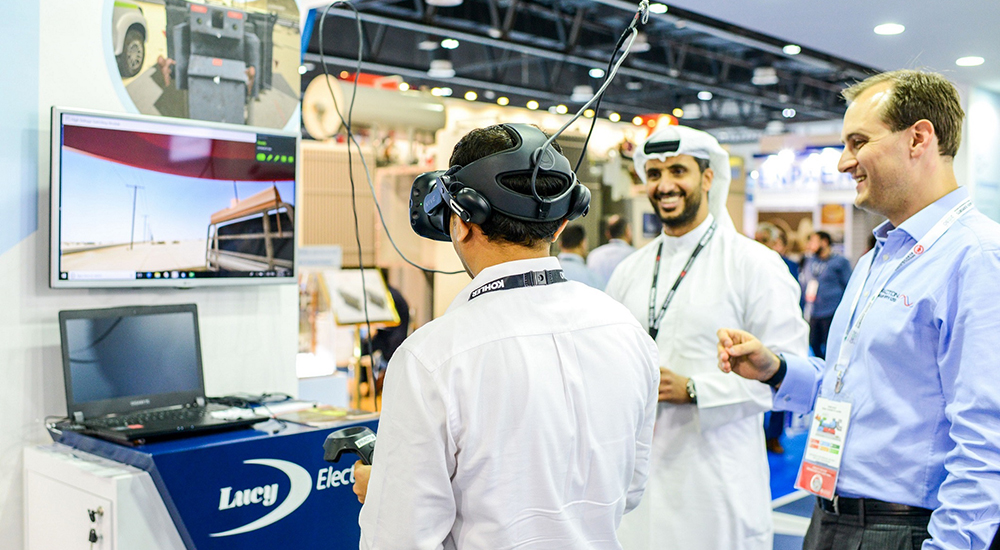The GCC private sector and international investors will continue to play an increasingly important role in meeting the rising demand for electricity across the Arab world, according to the newly-released MENA Power Industry Outlook 2019.
The report, prepared by Ventures Onsite for Middle East Electricity, the region’s leading event for the power industry, says a rapidly growing population, urbanisation, rising income levels and industrialisation are driving increased electricity demand throughout the GCC – a region that is expected to require power infrastructure investment totalling $109 billion over the next five years.
According to the MENA Power Industry Outlook 2019, the GCC alone will require $55 billion for an additional 43 GW of generating capacity and $34 billion for transmission, with much of the funding for development coming from both public and private sector purses. “Investments in the GCC’s power sector will continue to remain a priority with the private sector increasingly playing a significant role,” says the report, pointing to a range of opportunities for public-private partnerships to make inroads in the region’s power sector.
“The GCC region appears best suited for PPP opportunities considering the sustained lowered hydrocarbon prices,” continues the report, adding: “While a few countries are more advanced than others in the legislative process, supported by authorised institutions, the others seem to be focusing on exploring this project delivery model.”
The MENA Power Industry Outlook 2019 also reveals that much of the investment will be focused on diversification and conservation of electricity with a renewed emphasis on solar, renewables and smart grids, which continue to gain regionwide momentum.
“The GCC smart grid market, which is gaining prominence, is projected to grow to $1.68 billion by 2026 due to the deployment of smart grid infrastructure by GCC governments. Energy storage systems are also becoming attractive in the GCC as it forms a crucial component in the development of smarter grids. The GCC countries’ grid inter-connectivity is expected to generate $33 billion in investments, economic and energy savings over the next 25 years,” says the Outlook.
“The GCC’s potential is backed by a significant increase in demand for power, and supply diversification and conservation throughout the MENA region,” explained Claudia Konieczna, Exhibition Director, Informa Industrial Group. “With power investment expectations for the region reaching $260 billion between now and 2022, this puts the exhibition’s catchment zone in the top global league for power investment and explains why international interest in the show continues rising annually.”
Informa believes when the show opens for its three-day run visitors will discover the biggest regional industry gathering in the event’s history, which now spans four decades. “All aspects of the industry will be represented and, with some of the biggest names in the sector participating, we can also anticipate serious segment technological breakthroughs taking centre-stage,” added Konieczna.
MEE organisers are also planning a comprehensive knowledge programme to coincide with the show, including the much-anticipated, and CPD accredited, Power Generation O&M Conference. “This will focus attention on the key industry developments which are changing the entire face of this vital sector,” said Konieczna.
Topics already listed for discussion include: Digital retrofits for improved power plant efficiencies, value-based maintenance, and redefining power plant performance using cloud-based analytics. There will also be a case study on reliability centre maintenance presented by Egypt’s East Delta Electricity Production Company.
“Aside from this, the show will offer a diverse range of professional education and training opportunities,” added Konieczna. “Attendees will be able to learn about the latest technologies at exhibitor-led Technical Seminars, and it is our intention to ensure that a visit to Middle East Electricity is essential to every power professional within the region and those wishing to work with them.”
Middle East Electricity is held under the patronage of HH Sheikh Maktoum Bin Mohammed Bin Rashid Al Maktoum, Dubai Deputy Ruler and is hosted by the UAE Ministry of Energy.
Key takeaways
- Rapidly growing population, urbanisation, rising income levels and industrialisation are driving increased electricity demand.
- GCC region is expected to require power infrastructure investment totalling $109 billion over the next five years.
- According to the MENA Power Industry Outlook 2019, the GCC alone will require $55 billion for an additional 43 GW of generating capacity and $34 billion for transmission.




















